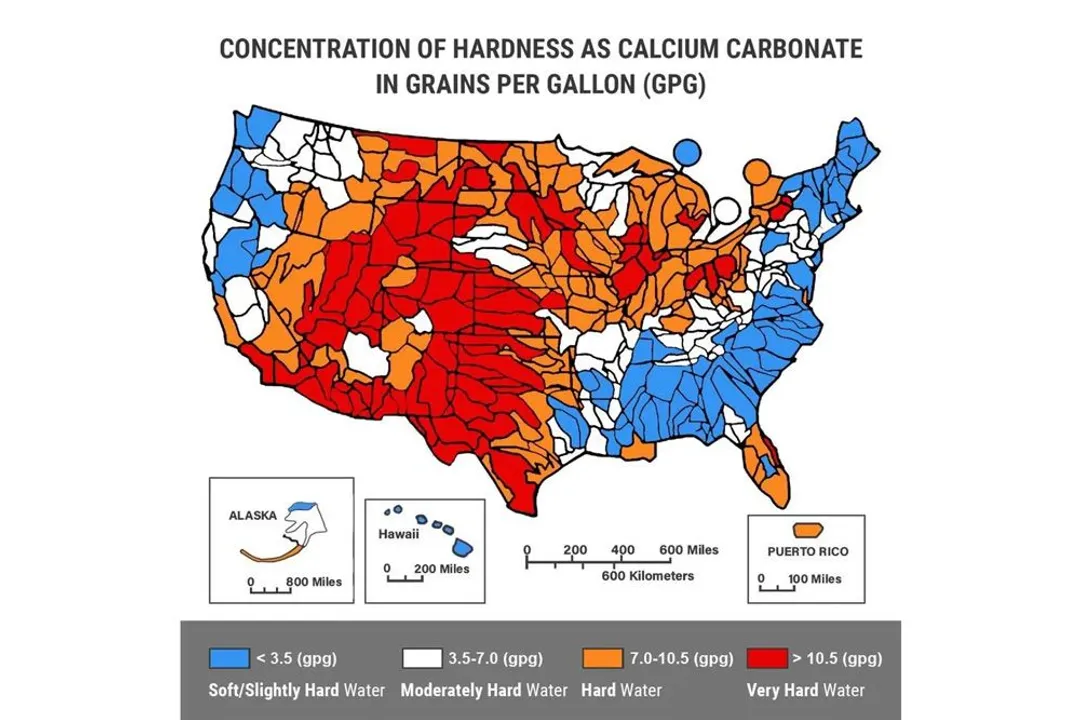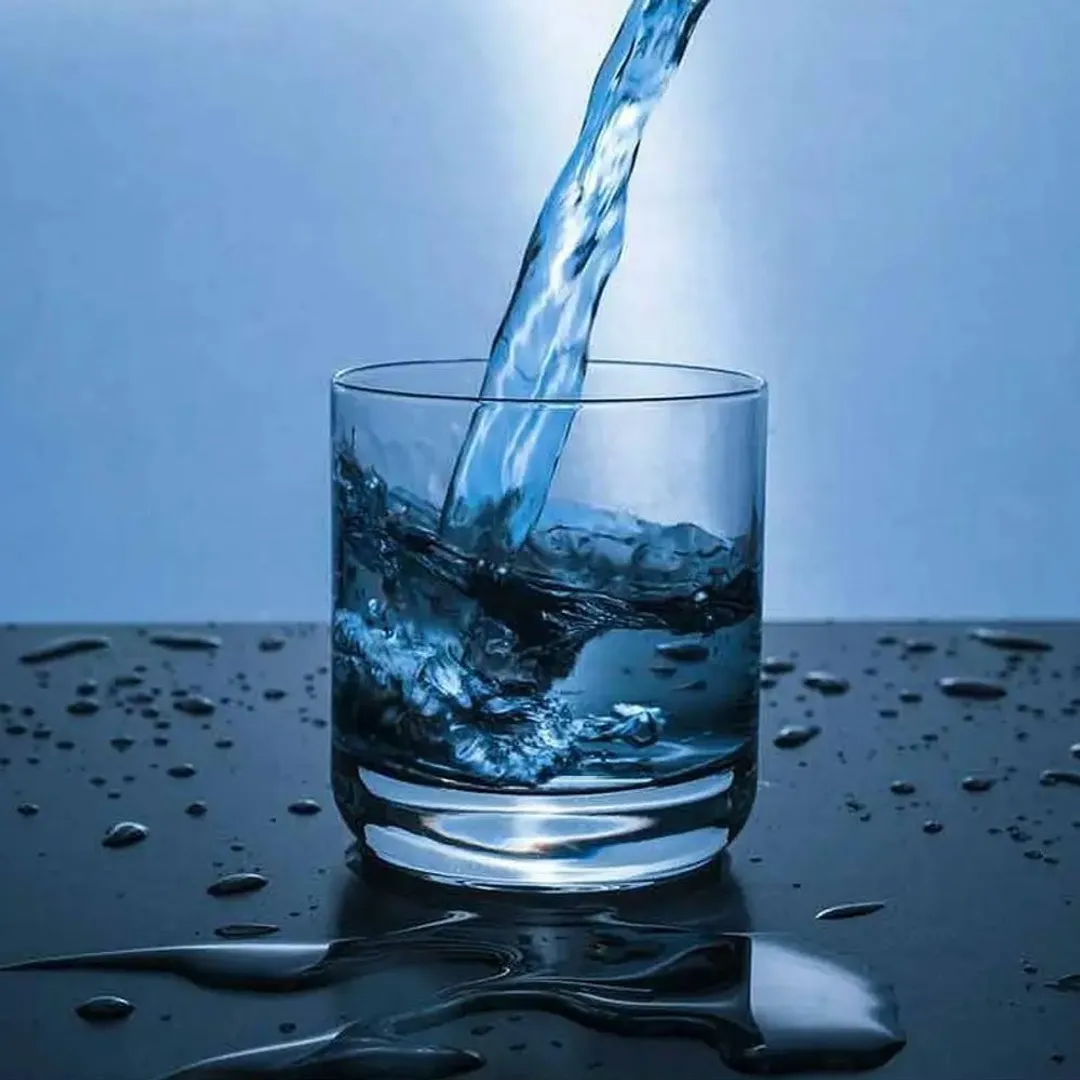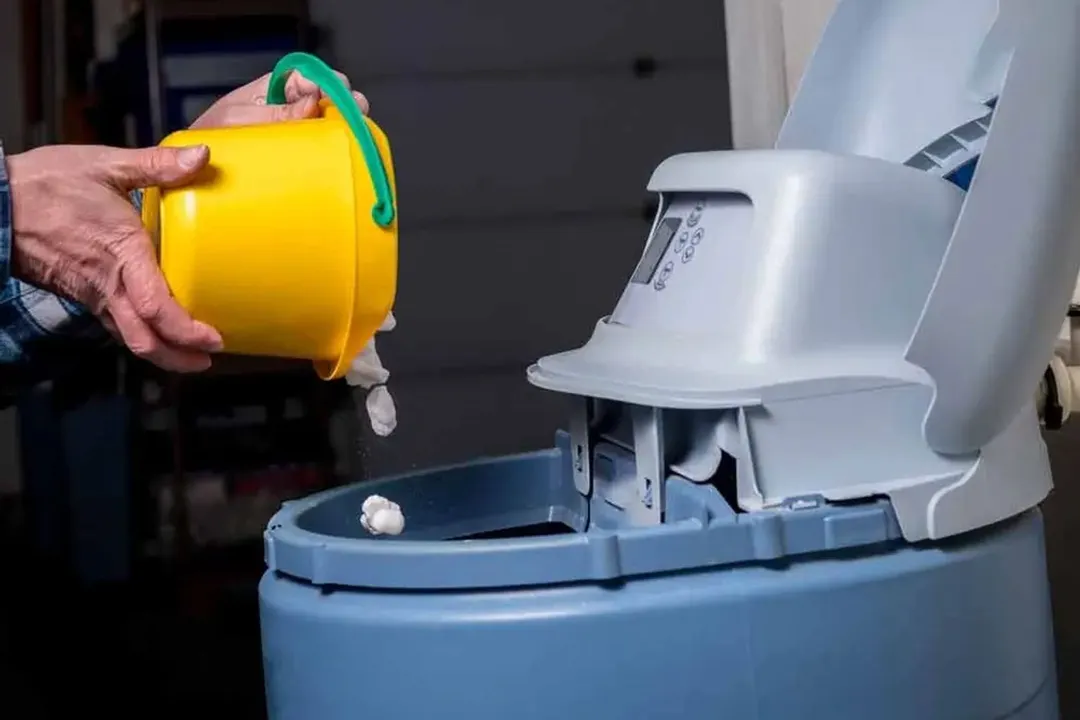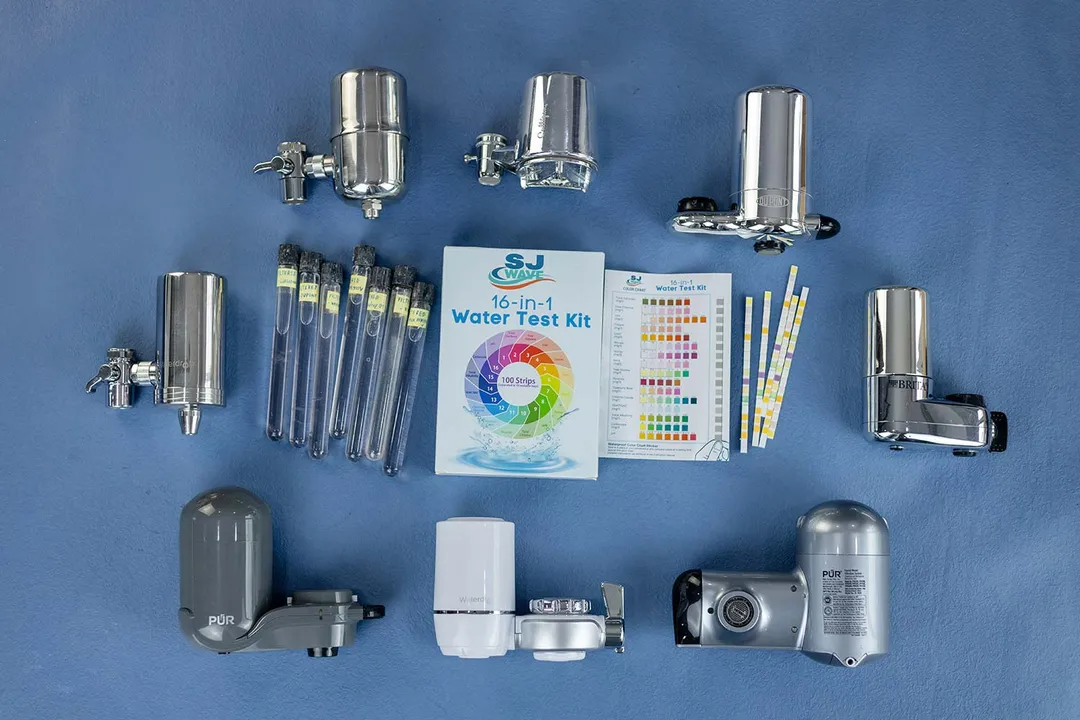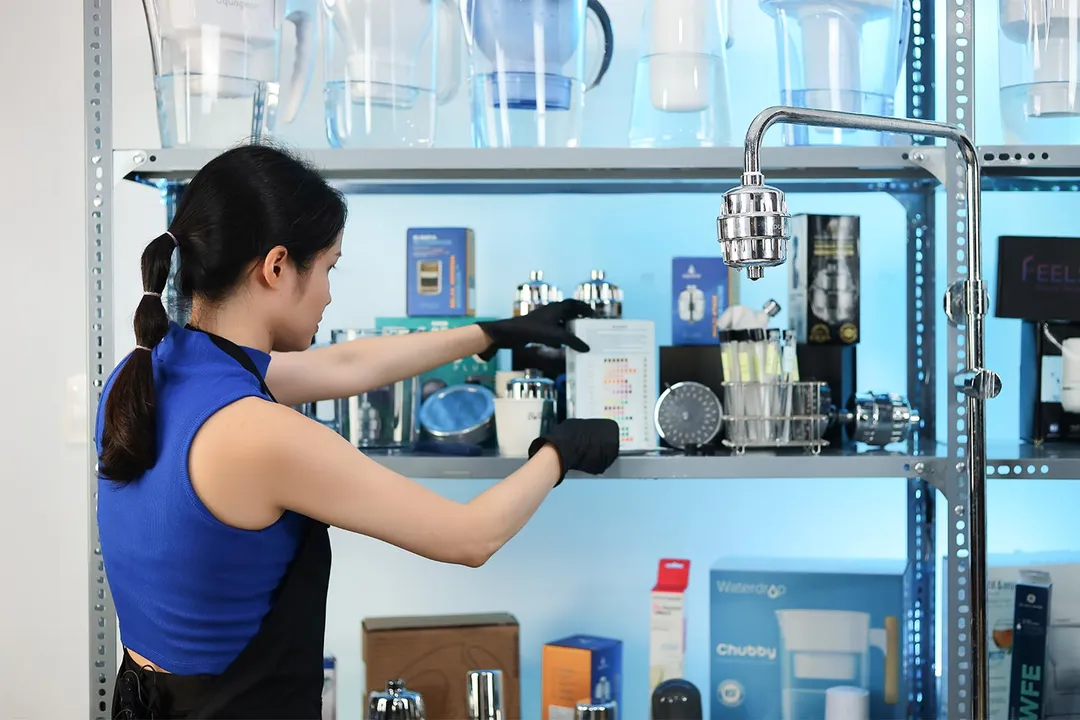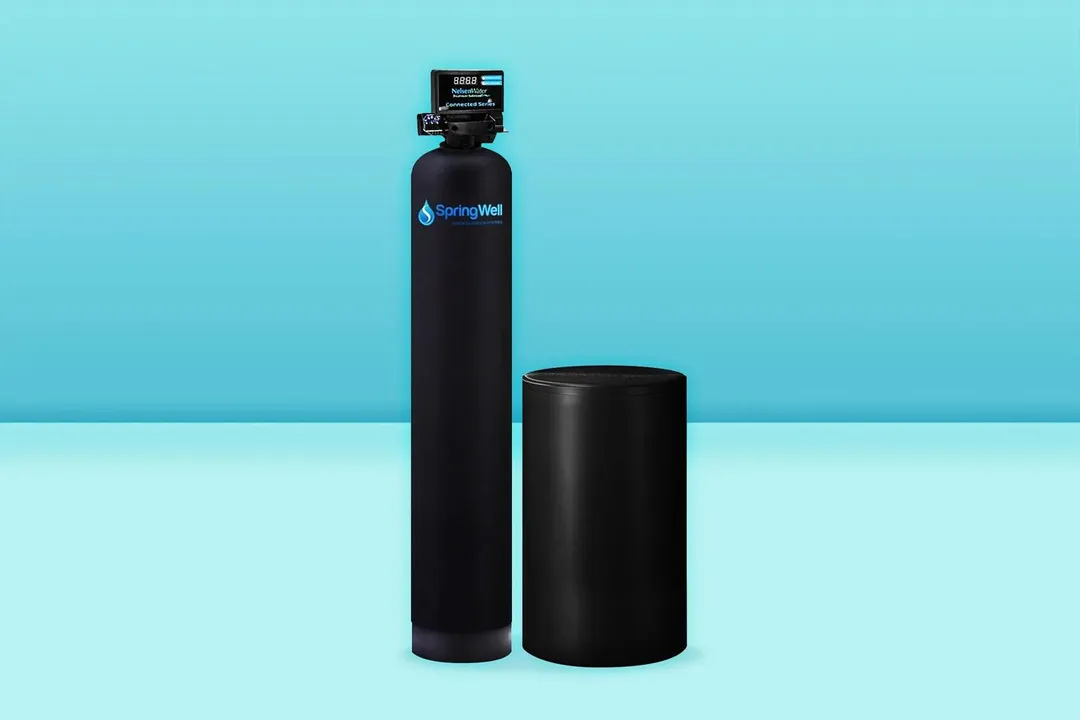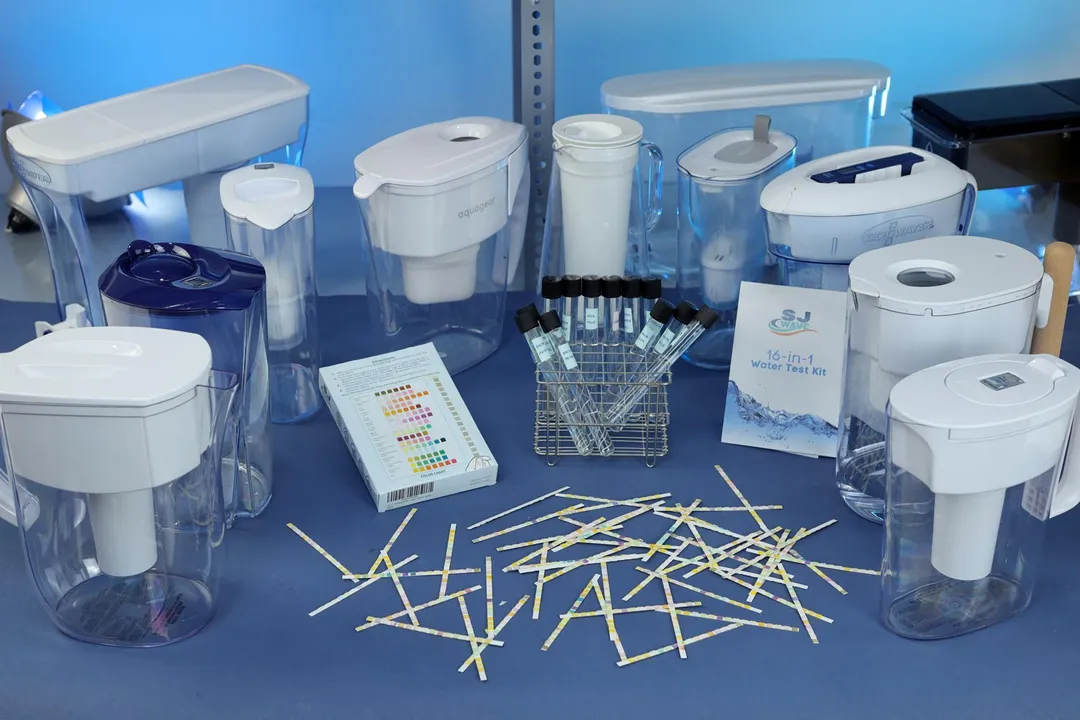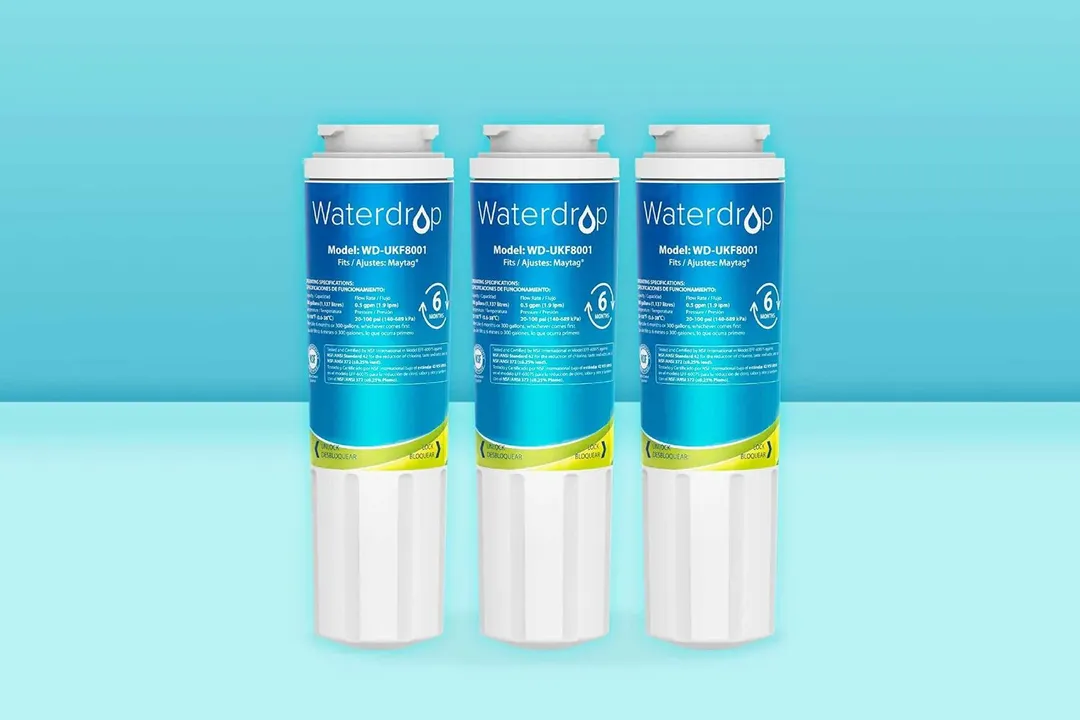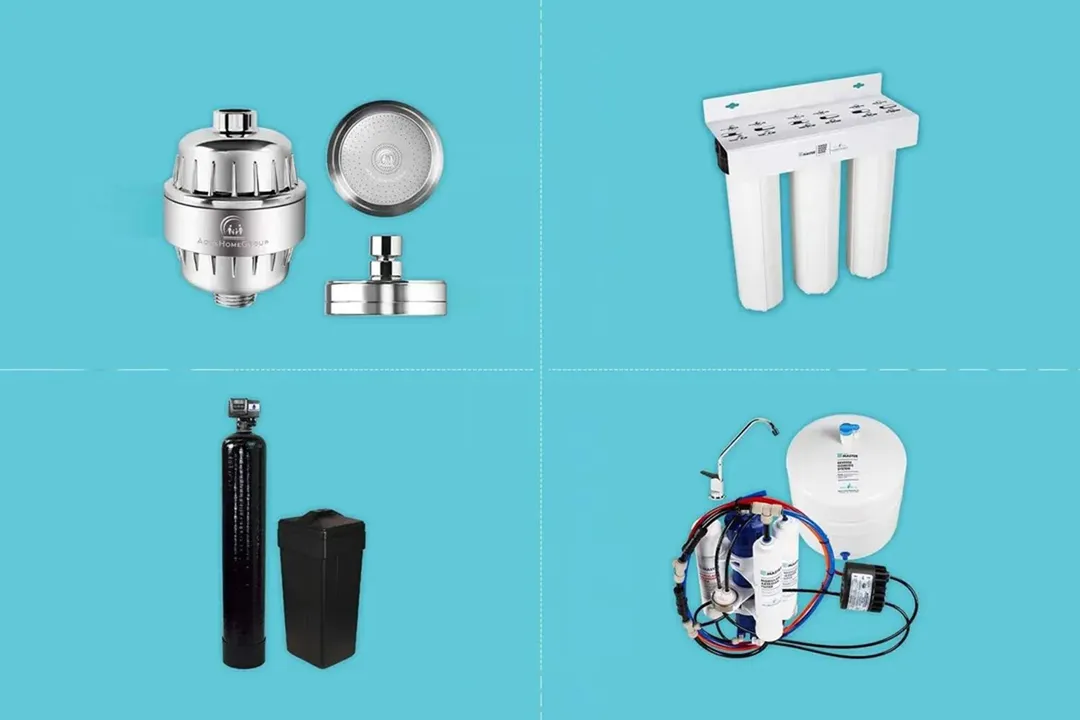Our recommendations are made independently through Research & Testing. We may receive commissions from purchases made via our links.
Things to Consider When Buying a New Faucet-Mount Filter
Faucet-mount water filters, by themselves, are rather simple. But to find one that fits you and your family’s needs and budget can be a rather complicated task. Keep these few things in mind when browsing.
Faucet-mount filters are fairly straightforward, but if you want the best for your kitchen, here are a few things to remember when you browse.
Filtering Performance
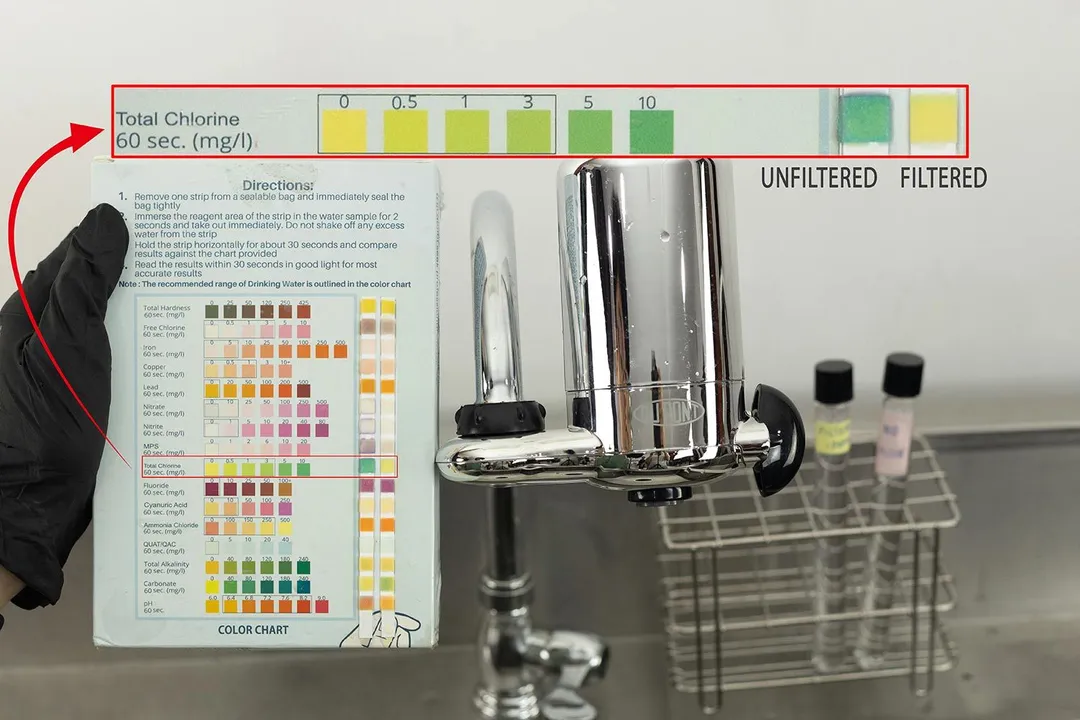
Manufacturers typically disclose what kind of contaminants their filters are effective against. You can find this information in the product description or a lab test report in the user manual. Cross-check the manufacturer’s list to see if the filter is effective against the contaminants that concern you most (chlorine, lead, bacteria, etc.)
Reputable manufacturers also get their filters tested by independent third-party organizations like NSF International. A stamp of approval from these organizations is a good sign that the filter will work as advertised.
Filter Cartridge Capacity
Filter cartridges don’t last forever. Depending on the type, they’re good for between 100 and 300 gallons. Beyond that, they have to be replaced.
Your best bet is to pick one that fits the average water use in your household. High-capacity filter cartridges are usually pricier, but they’re worth the investment. You can snap them in and forget about them for several months.
Filter Design
The longevity of a water filter largely depends on its design and construction.
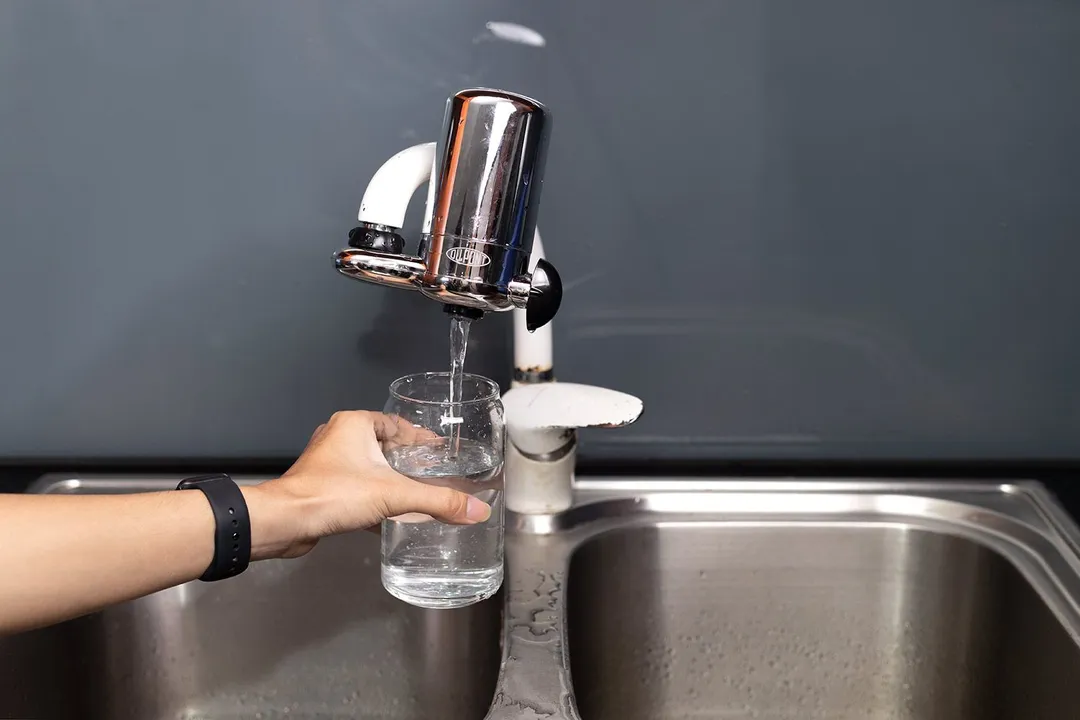
Most filters on the market are made from either plastic or metal (usually stainless steel). While plastic filters are less expensive, they may not last as long as their metal counterparts. Of course, with the greater durability of metal filters will come a higher price tag.
This isn’t to say that plastic filters are bad, though. Plenty of shoddy devices out there are built from stainless steel just to give the appearance of value. But as a rule, it’s less risky going for a metal filter than a plastic one.
Aside from the material, the filter’s durability mainly depends on the build quality. Unfortunately, you can’t assess how well the product’s built until it arrives at your door, so hands-on reviews such as the one done by Healthy Kitchen 101 here — which includes a build quality assessment — will be helpful for you.
About your tip
Matthew Lee is a writer and editor for HealthyKitchen101. With over 8 years working for various outlets and agencies, specializing in tech review and other subjects of note, such as current affairs.

